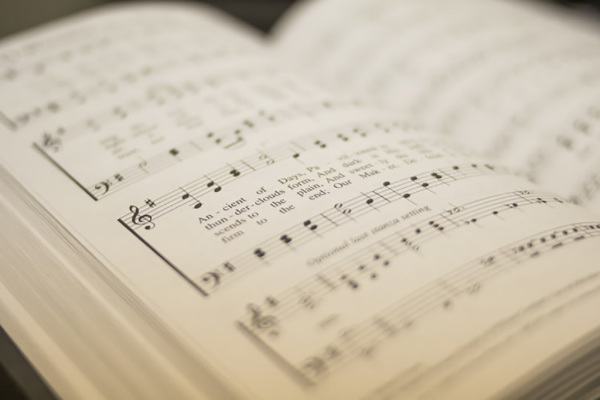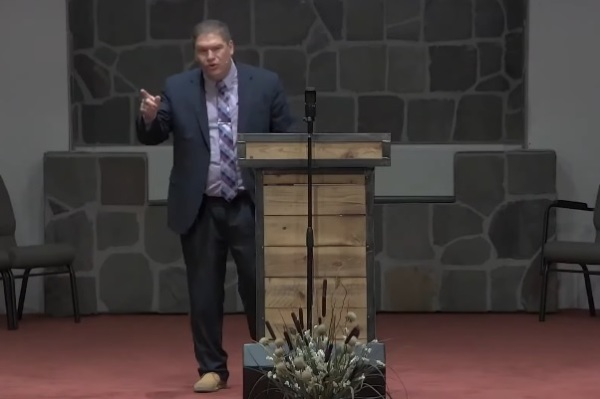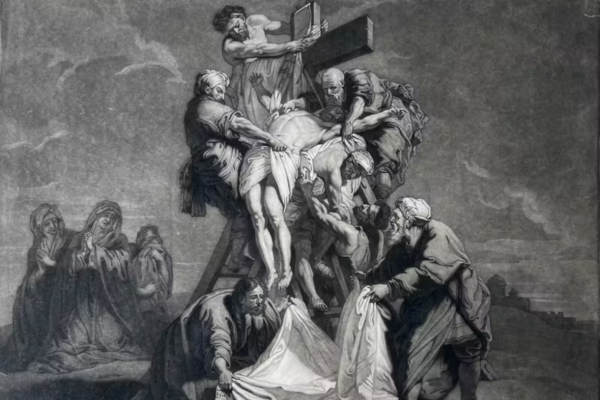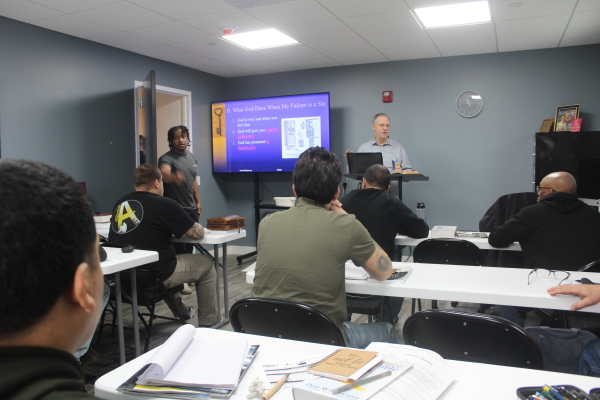ERLC, faith groups defend Texas inmate’s right to have pastor lay hands on him during execution
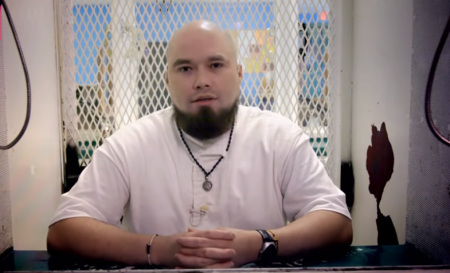
The Southern Baptist Convention's Ethics & Religious Liberty Commission and the National Association of Evangelicals joined with five other faith and religious freedom groups on Monday to defend the right of a Texas death row inmate to have his pastor lay hands on him and pray as he receives a lethal injection for murdering a man in 2004.
The inmate, John Henry Ramirez, 37, had his execution for the murder of 46-year-old convenience store worker Pablo Castro in Corpus Christi delayed by the U.S. Supreme Court on Sept. 8, the Associated Press reported. The nation's high court also ordered a briefing schedule for Ramirez's plea to have a pastor present to be argued in October or November.
The ERLC and the Seventh-Day Adventist General Conference joined the Christian Legal Society, the Anglican Church in North America, the Baptist Joint Committee for Religious Liberty, the National Association of Evangelicals, Queens Federation of Churches and the Rutherford Institute in a 33-page amicus brief in support of Ramirez's "religious exercise."
"In carrying out the execution of John Henry Ramirez, the State of Texas ... will substantially burden his right of religious exercise if it imposes a blanket ban on his pastor engaging in audible prayer or touching him to give spiritual comfort at his moment of death," the brief states.
"Previous cases in this Court have already indicated the importance of the right to such meaningful spiritual comfort in the execution chamber for a condemned prisoner of any faith. The amici joining this brief, who include Christian religious bodies of varying theological views, affirm the importance of that right."
Ramirez stabbed Castro 29 times during a robbery in 2004, from which he only got $1.25 after a three-day drug binge with two women who were with him at the time of the murder. He fled to Mexico after the attack but was arrested 3.5 years later and sentenced to death.
His lawyer, Seth Kretzer, argued that the Texas Department of Criminal Justice was violating his First Amendment rights to practice his religion by preventing his pastor from laying hands and making vocal prayers as he received his lethal injection.
"It is hostile toward religion, denying religious exercise at the precise moment it is most needed: when someone is transitioning from this life to the next," Kretzer said in court documents.
Dana Moore, Ramirez's spiritual adviser the last four years and pastor at Second Baptist Church in Corpus Christi, told the AP that "John's sentence wasn't death and you can't have any meaningful contact."
"He is paying for his crime," Moore is quoted as saying. "I guess the question that would come up, is that not enough?"
Mark Skurka, the lead prosecutor at Ramirez's 2008 trial who is now retired, said the inmate's victim did not have the luxury of a pastor praying for him when he was murdered and supports limitations due to security concerns.
"Pablo Castro didn't get to have somebody praying over him as this guy stabbed him 29 times," Skurka said. "Pablo Castro didn't get afforded such niceties and things like to have a clergyman present."
In their amicus brief, the faith and religious freedom groups cited four distinct reasons that the state has failed to justify this substantial burden under the demanding standard of the Religious Land Use and Institutionalized Persons Act.
"The State has failed its obligation under RLUIPA to present specific evidence—not merely generalized assertions or speculation—as to why banning these practices is necessary to serve order and security," they noted.
The groups explained that Texas attempted to excuse its failure to present specific evidence to shift the burden of proof back to Ramirez concerning less restrictive means and compelling interests. They contend, however, that "under RLUIPA, both the burden of production and the burden of persuasion remain on the State, not the person whose religious exercise is substantially burdened."
Even if Texas were to demonstrate that denials of audible prayer and physical touching further a compelling interest, the brief asserts the state must also prove that the rejections are the least restrictive means of furthering that interest.
"The State has multiple less restrictive means of maintaining order and security, and it has not demonstrated that these are inadequate," the brief maintains. "It can (and does) vet and train outside spiritual advisors, and if their actions cause disruption, it can remove them from the chamber and impose penalties. And as Ramirez has suggested, the State can require that audible prayers be soft and nondisruptive."
The faith groups further argue that Texas undercut its argument that a blanket ban on "audible prayer and physical touching are necessary to serve compelling interests" because they have previously allowed the practice in previous executions.
"It has already permitted audible prayer by spiritual advisors in the execution 7 chamber. And it has already permitted spiritual advisors to place their hands on inmates during the execution procedure," the brief reads. "Accordingly, Ramirez is entitled to a continued injunction to prevent him from being executed in a manner inconsistent with his right to exercise his religion in the last minutes of his life. And this Court should order that if the State continues to ban these religious practices, the case should be remanded to litigate Ramirez's demand for a permanent injunction against the State's ban."











